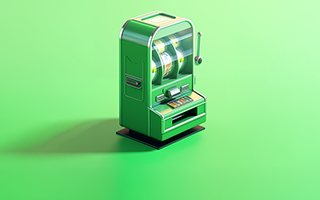Gambling addiction – causes, symptoms, and how to handle it
There are several terms that are understood to be the same thing, and they include the term gambling addiction in the literature. Regardless of what it is called, gambling addiction is an uncontrollable, almost obsessive need to gamble, so that entertainment is no longer the goal, but rather becomes a matter of WHY you need to gamble.... This condition is not limited in its effects to a particular normal variable and can even go so far as to destroy it. Obsession can lead to various types of suffering, including gradual financial and emotional conflicts. This affects not only the addict, but also his relatives and those around him. In this case, understanding the problem is important to identify the symptoms and help.
Symptoms of gambling addiction
Like with any harmful behavior, it’s key to recognize the problem early and take effective steps to address it. Below is a list of symptoms that, if you notice in yourself or someone close to you, should raise concern and push for significant changes.
Early symptoms of gambling addiction:
Obsessive thinking - constant thoughts about gambling, planning new games, and developing strategies.
- Increased tolerance - the need to gamble with higher risks and larger amounts of money. This happens because the brain needs stronger stimuli to feel the same excitement.
- Irritability when cutting back - feeling anxious or irritated when trying to limit gambling, looking for excuses to return to it.
- Chasing losses - a strong urge to win back lost money by continuing to gamble. Recovering losses becomes an excuse, not the goal.
- Neglecting responsibilities - skipping work, school, or home duties because of gambling. The person may even organize their schedule around gambling.
These behaviors can show up in different ways, but they often indicate the beginning of a growing problem that shouldn’t be ignored.
Treatment methods – how to help yourself
The first step in overcoming gambling addiction is awareness and admitting that there’s a problem. Many people with this addiction are in denial and might react with anger when confronted. Fortunately, there are effective methods to help break free from this addiction:
- Cognitive behavioral therapy (CBT) - this method focuses on identifying and changing negative thought patterns that lead to gambling. It has proven effective in reducing gambling habits by teaching healthier ways to think and cope with challenges. Gambling addiction often starts from emotional issues or low self-esteem, so addressing these during therapy makes recovery easier.
- Medication - while there’s no magic pill for gambling addiction, some antidepressants and mood stabilizers can help manage symptoms, especially for those with co-existing mental health issues.
- Support groups - programs like “gamblers anonymous” provide a space to share experiences and offer mutual support throughout recovery. These groups offer understanding, build connections, and keep people motivated, especially in difficult moments. They can help achieve long-term success.
Stay aware - the path to healthy gambling
Understanding gambling addiction and recognizing its symptoms is the first step toward recovery. If you or someone close to you is struggling with this problem, professional help is necessary. Therapy, medication, and support groups can help regain control and work towards a healthier life.

